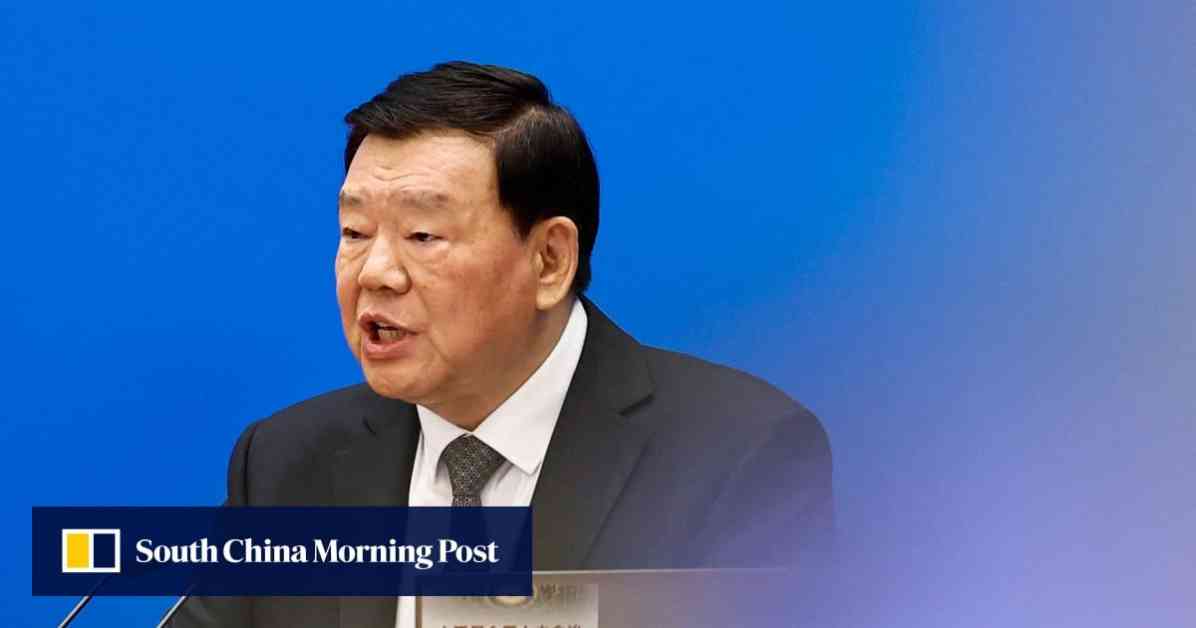Chinese Official Advocates for AI Access for All
Lou Qinjian, the spokesperson for China’s top legislature, emphasized the importance of making technological innovations like artificial intelligence accessible to everyone, not just privileged countries and individuals. Speaking at a briefing in Beijing ahead of the annual National People’s Congress, Lou highlighted the need for inclusivity in the development of AI technologies. This push for equity in AI was especially timely as the world grappled with economic uncertainties and the role of technology in shaping the future.
In response to questions from foreign media about how AI could contribute to economic stability, Lou showcased China’s recent technological advancements, citing the example of the Chinese chatbot DeepSeek. He emphasized how DeepSeek represented China’s commitment to innovation and inclusivity in technology development, offering a glimpse into the country’s contributions to the global tech landscape. Lou’s personal interest in AI, stemming from his background in computer science, added a personal touch to his advocacy for democratizing technological advancements.
China’s Pioneering AI Innovation
One of the key highlights of Lou’s address was the role of DeepSeek, a Hangzhou-based start-up that had garnered international attention with its open-source AI models. These models, comparable to those developed by US competitors, showcased China’s prowess in AI development at a fraction of the cost. By leveraging innovative approaches and open-source technologies, DeepSeek had not only challenged conventional notions of technological superiority but also underscored the importance of accessibility in the AI landscape.
Lou’s emphasis on bridging the technological divide and ensuring that AI innovations were not monopolized by wealthy nations resonated with global audiences. The success of DeepSeek served as a testament to China’s commitment to fostering a more equitable technological ecosystem, one that prioritized innovation and inclusivity over exclusivity and elitism. As the world looked towards China for leadership in the AI space, Lou’s statements reinforced the country’s stance on promoting accessibility and equity in technological advancements.
Implications for Global Tech Dynamics
The impact of China’s AI initiatives, as highlighted by Lou, extended beyond domestic boundaries to influence global tech dynamics. By showcasing the success of DeepSeek and its implications for the broader tech industry, China signaled its intent to lead the way in redefining traditional power structures in technology. The ability of a Chinese start-up to rival US counterparts in AI development underscored the shifting landscape of technological innovation, where accessibility and affordability were becoming key drivers of progress.
Lou’s remarks also shed light on the regulatory challenges associated with emerging technologies like AI. As debates around tech governance and data privacy intensified, China’s approach to AI development offered a unique perspective on balancing innovation with accountability. By emphasizing the need for responsible technological advancements, Lou positioned China as a key player in shaping the ethical dimensions of AI, setting a precedent for other nations to follow.
In conclusion, Lou Qinjian’s advocacy for AI accessibility and equity underscored China’s commitment to democratizing technological innovations for the benefit of all. Through initiatives like DeepSeek, China not only showcased its technical prowess but also reinforced its stance on promoting inclusivity and innovation in the global tech landscape. As the world grappled with the implications of AI advancements, China’s leadership in fostering a more equitable and accessible AI ecosystem set a precedent for a more collaborative and inclusive future in technology.



























